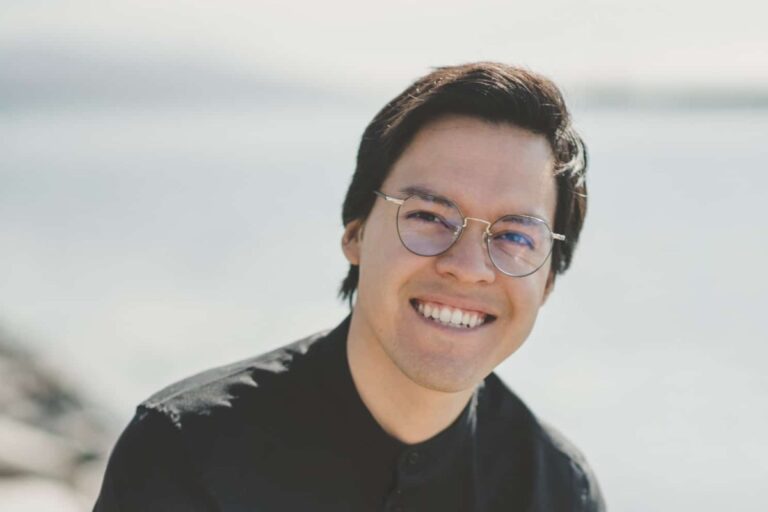
Approximately 40% of 2021 high school graduates aged 16 to 24 did not attend college or university, according to the U.S Bureau of Labor Statistics. Ultimately, many are not able to experience the advantages of early career resources, such as college job fairs.
Founder and CEO Juan Lionheart seeks to bridge this socioeconomic gap with his Raleigh-based startup Lionheart. It’s a talent recruitment and training platform that connects companies looking to hire to individuals with diverse, disadvantaged backgrounds who are early in their careers.

Juan knows firsthand how socioeconomic limitations can set one back.
“I started Lionheart to enable human potential,” he said. “My experience growing up poor with my mom in L.A. made me realize that socioeconomic factors primarily keep individuals from reaching their highest potential.”
He said the platform helps these people get their foot in the door and helps eliminate the risk for companies.
Lionheart offers paid three-month tech apprenticeships on a month-to-month basis. It is a two-sided marketplace that matches individuals with companies based on their industry of interest, skill set, and time zone.
Companies can ‘bid’—with a minimum of $15 per hour—on who they want to hire to do remote, project-based, part-time work.
Starting out, apprentices work no more than five to 10 hours per week. As they take on more projects, they level up on the platform—and so does their monthly pay. The idea is that a company will eventually want to hire the apprentice full-time and Lionheart will take a commission from the outgoing fee, Juan said.


After working in tech space for six to eight years, Juan launched Lionheart in 2021. One year later, about 500 people have signed up and 30 apprentices have been showcased to date.
The company recently fully relocated to Raleigh from Los Angeles.
Unlike the massive jobs platforms LinkedIn and Monster, Lionheart is focused more on workforce development rather than ‘match-making.’ The platform is popular among minorities, specifically among Blacks and Latinos, and most participants are ages 24-26.
“I’m more interested in helping these individuals get the skills that they need,” Juan said.
In weekly sessions, the apprentices collaborate with each other to learn about digital marketing. This includes content marketing, marketing strategy, search engine optimization, and social media strategy, with some of the topics curated by Juan and his team.
Juan modeled Lionheart after Abraham Maslow’s Hierarchy of Needs, which points to community playing a critical role in enabling human potential. So, the platform’s main approach to learning is through collaboration, not educational courses.
Juan said they do discuss fundamental ideas or topics—such as customer or user acquisition, revenue and retention—but all other skills are learned through the power of community.
“If you have a healthy community, you’ll develop great relationships,” he said. “You don’t want to be left behind. You want to keep skilling-up.”
Aside from the sense of community, people are drawn to the platform because of Juan’s background as a founder. Growing up as an immigrant from Ecuador in Inglewood, Calif., and experiencing a difficult childhood, he can connect with Lionheart members on a personal level.
In his teens, Juan used video games as an escape, keeping him away from drugs and gangs. His first hero was Squall Leonhart, the protagonist of Final Fantasy VIII. (As you may have guessed, Squall inspired the name of both Juan’s startup and his own last name, which he will soon officially make his legal surname.)
“Squall Leonhart’s story and character progression was shocking to me because it was such a parallel to my own,” Juan said. “Lionheart in its essence is about bravery, that one can re-skill and change their socioeconomic realities for their families and themselves.”
Currently, the Lionheart team consists of Juan and a few engineers who are contractors.
For 2023, Juan said it is necessary that the company raises funding in order finish the platform’s back end and Stripe integration. They are unable to move forward without it.
But, once they raise a funding round, he is confident in his ability to scale the company and grow the team because of his past experience working in growth and product.
Juan said he believes that technology is increasingly digitizing this information-based global economy, and it is becoming a differentiator in our society.
“I believe for our humanity to solve the greatest problems,” he said, “we need to unlock the potential of individuals of humble beginnings as we once did with gender and race.”


